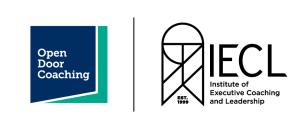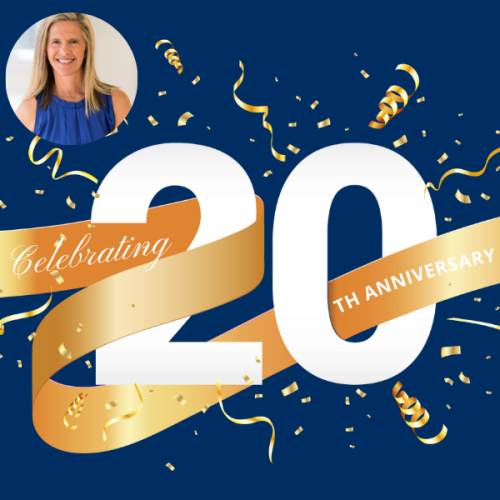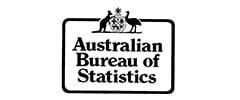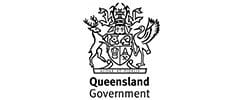This month we are celebrating Open Door’s 20th birthday and we want you to join us for a range of inspirational Coaching Cafes; with a few flashbacks thrown in. And one of the most inspirational and experienced people we know is our very own Brigitte Calvert, Learning and Development Manager at Open Door.
For 20 years, at Open Door we’ve focussed on the vision of: creating workplaces we can all be proud of by bringing a culture of coaching to our workplace. And to achieve that vision we trained hundreds of managers and leaders to coach their people. Creating as Air Force Coaching would describe it, a ‘force-multiplier affect’. That is coaching one person to coach many more.
.
Listen to the Coaching Cafe podcasts
Brigitte has been at the centre of our training and assessments. Most importantly, she understands at a very detailed level, what great coaching look, feels and sounds like. In line with the ICF Core Competencies.
Join us for this Coaching Café as Paula interviews Brigitte and unlocks her insights gathered over 20 years of making a difference in coaching and training.
Brigitte’s background and interest in coaching
Brigitte initially sought counselling after a significant life change but found it didn’t meet her expectations. She remembered an article she had read about coaching and decided to explore it further. After experiencing the positive impact of telephone coaching, Brigitte developed a strong interest in coaching professionally. Her background in teaching and a desire for personal growth further fuelled her passion for coaching.
From that initial article that sparked interest, Brigitte went on to study coaching. Meeting Natalie as her trainer and joining Open Door in 2004.
The essence of coaching
Brigitte loves what coaching stands for. Brigitte explains that coaching aligns with her core values and way of living. Furthermore, she emphasizes the importance of cultivating trust and safety, evoking awareness, and facilitating growth. To her, coaching is about having an open and curious mindset. In addition, actively listening, asking purposeful questions, and believing in the potential of the coachee. These coaching competencies shape Brigitte’s personal and professional life.
Brigitte says, ‘coaching changed the way I view the world; how I want to go through life and how I want to experience life. It’s a gift.’
Not just a job
Brigitte shares that coaching is not just a job for her; it’s an integral part of who she is. She believes in the power of coaching to create connections, foster growth, and bring out the best in others. Coaching has changed her perspective on life and how she wants to operate. After almost 20 years, coaching has become ingrained in her identity.
Why is training and assessing coaching important to you today?
What great coaching sounds like?
What not-great coaching sounds like?
Brigitte has trained and assessed hundreds of people in coaching. Delivering the all the coaching programs that Open Door offers. She views it as a way to contribute to the learning and development of individuals. In particular, she aims to ensure that coaches graduate feeling competent and confident in their coaching skills. Furthermore, by understanding what coaching is and what it’s not, coaches can engage in conversations that empower others and help them reach their potential.
Brigitte describes great coaching as sounding open, curious, and focused. In addition, it involves creating space and silence. Actively listening to the coachee and asking questions with intention. Great coaching stretches the coachee’s thinking. Furthermore, offers different perspectives, and facilitates reflection and growth. It aims to evoke the coachee’s awareness. And aligns their experiences with their values and desires.
Brigitte contrasts great coaching with coaching that falls short. In particular, not-great coaching often involves closed and leading questions, interrupting the coachee. In addition, offering advice or opinions. It lacks the openness and curiosity of great coaching and can resemble other modalities such as mentoring or counseling.
At the same time, Brigitte acknowledges that sometimes a question may not resonate with the coachee. In such cases, she advises coaches to let go of the question and ask another one. It’s important to take a moment to consider the right question that will support the coachee’s progress and growth.
The importance of growth mindset
In addition to discussing the key attributes of great coaching, Brigitte Calvert also emphasizes the importance of having a growth mindset in coaching. She believes that cultivating a coaching mindset is not only essential for effective coaching, but also for personal and professional growth. Brigitte describes a coaching mindset as one that is open, curious, flexible, and reflective.
Furthermore, it involves having a deep belief in others’ potential and trusting that they can find their own way. This mindset extends beyond the coaching session and becomes a way of living and operating in all aspects of life. By integrating a growth mindset into coaching, Brigitte believes that individuals can experience transformative changes and align their experiences with their values and desires. Leading to a more fulfilling and purposeful life journey.
The Coaching Café also features Brigitte’s greatest coaching moment. And she talks about the important of parent or carers taking a coaching approach.
Her final key message for us to reflect upon is:
I think, at the end of the day, we all want to go home and say, I had a really great day today. And how have I contributed to that? Well, for me, it’s taking a coaching approach to the way I live. And the way I approach others. Because I believe that that creates an environment where you build trust with people and build connection. And I could go on.
You can listen to the full podcast here. And we can assure you, it will be a great 30 minutes spent.
FREE Coaching Cafe Webinar
Every week our team of experts present “Coaching Cafe” webinar with topics for Managers, Leaders, Business Owners, and everyone who wants to be a better workplace coach, leading their teams to higher productivity, better outcomes and a happier, healthier workplace.







































